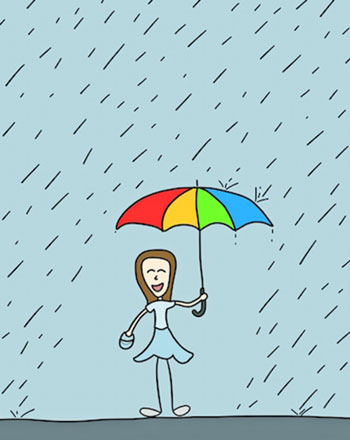Rich people are different from the rest of us — and that includes the way they experience happiness.
Instead of feeling positive emotions that involve connections with other people, their happiness is more likely to be expressed as feelings that focus on themselves, new research shows.
However, this difference does not necessarily mean that high-income people have more total happiness than people who earn less.
The findings were published this week in the journal Emotion, and they seemed to fit a larger pattern, according to the psychologists who conducted the study.
After all, they wrote, people with money are more insulated from social and environmental threats. That gives them the luxury of being able to focus on their own “internal states and goals” instead of having to worry about other people.
Those who inhabit the lower classes, on the other hand, often find themselves at the mercy of others. They may be more vulnerable to crime, for instance, or may be forced to send their children to underfunded schools. In their case, the researchers wrote, the best coping strategy is to muddle through together. That requires them to focus on other people instead of just themselves.
To see how social class influences happiness, Paul Piff and Jake Moskowitz of UC Irvine examined survey data from 1,519 Americans who answered questions about their household income and their emotional state. The participants hailed from all 50 states, and they were a racially, ethnically and economically representative microcosm of the country as a whole.
The survey probed people’s happiness by asking about seven distinct positive emotions: amusement, awe, compassion, contentment, enthusiasm, love and pride. Each emotion was described in a concise sentence, and survey-takers used a seven-point scale to show how much they agreed or disagreed with the statement.
The researchers found that people from higher social classes were more likely than their poorer counterparts to agree with statements indicating they felt pride (“It feels good to know that people look up to me”), contentment (“I feel satisfied more often than most people”) and amusement (“Many things are funny to me”).
On the other hand, people with less money were more likely than their richer counterparts to agree with statements that indicated compassion (“Nurturing others gives me a warm feeling inside”), love (“I develop strong emotions towards people I can rely on”) and awe (“I often feel awe”).
These associations held up even when the study authors controlled for factors including age, gender, political ideology and religious beliefs, the researchers reported.
The only aspect of happiness unaffected by income was enthusiasm, which the researchers assessed with the sentence, “I get great pleasure from pursuing my goals.”
“These findings indicate that wealth is not unequivocally associated with happiness,” Piff said in a statement.
“What seems to be the case is that your wealth predisposes you to different kinds of happiness,” he explained. “While wealthier individuals may find greater positivity in their accomplishments, status and individual achievements, less wealthy individuals seem to find more positivity and happiness in their relationships, their ability to care for and connect with others.”
